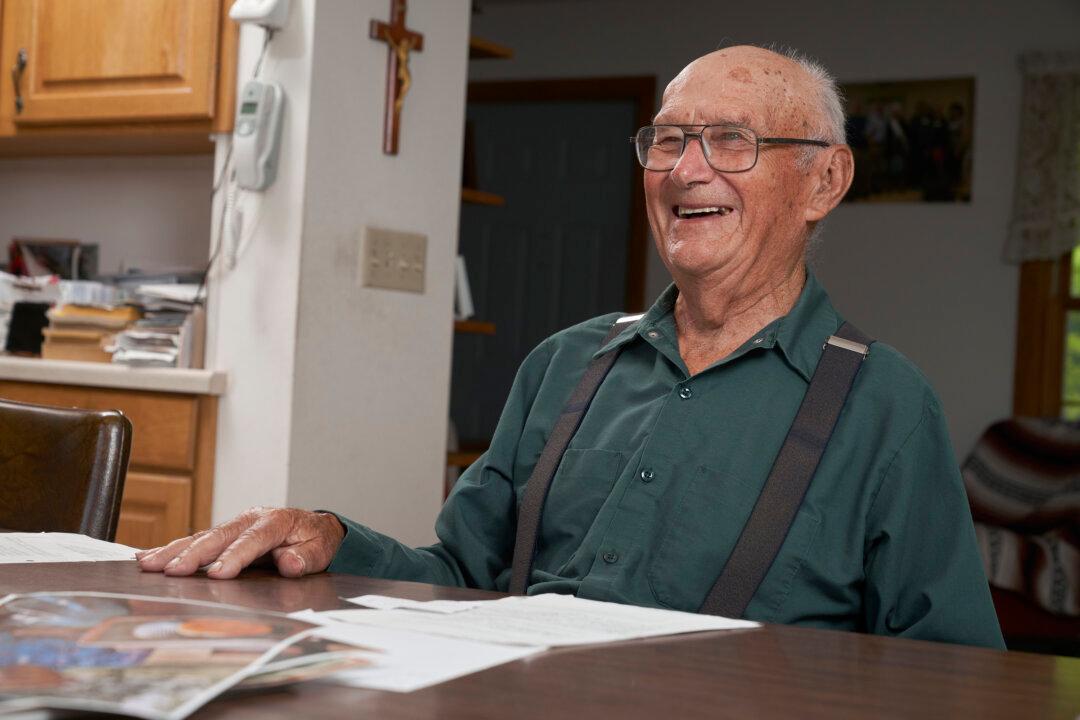WEST BEND, Wis.—Frank Falter remembers working alongside his father and siblings— planting the fields, harvesting hay, mucking the stalls, and feeding and milking the cows—on what was once his father’s 120-acre farm near West Bend, Wisconsin.
Those childhood chores led to a lifetime of farming until Falter, 93, retired this year. Falter’s farm now joins a decades-long trend of family farms vanishing from the nation’s landscape.
